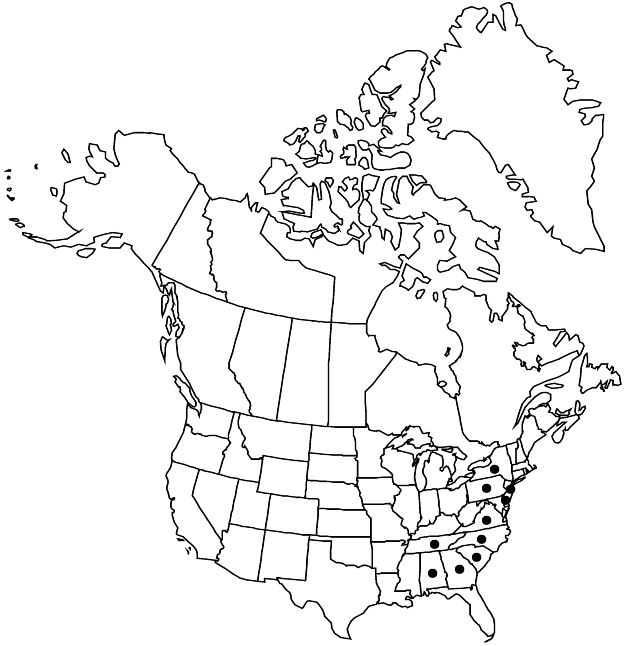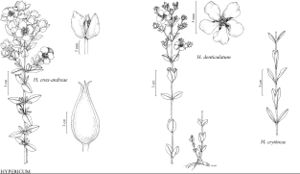Hypericum denticulatum
Fl. Carol., 190. 1788.
Herbs perennial, erect, branching at usually aerenchymatous base and in inflorescence, 2–7 dm. Stems: internodes 4-lined. Leaves (main-stem) spreading to appressed, sessile; blade usually broadly to narrowly ovate, rarely elliptic or lanceolate, 4–20 × 5–15 (–18) mm, mostly shorter than internodes, leathery, margins plane, apex acute to subrounded, densely gland-dotted, basal veins 1–5, if 1, midrib with 2–3 pairs of branches. Inflorescences broadly pyramidal to corymbiform, to 25-flowered, branching mostly dichasial. Flowers 5–13 mm diam.; sepals ovate or lanceolate to elliptic or obovate, subequal, 3–8 × 1.5–4 mm, margins sometimes ciliate, not setulose-ciliate, apex acute; petals orange-yellow, obovate, 5–10 mm; stamens 50–80, irregularly grouped; styles 2–4 mm; stigmas clavate. Capsules ovoid to rostrate-subglobose, 3–5 × 2–3 mm. Seeds 0.4–0.7 mm; testa obscurely linear-reticulate to finely ribbed-scalariform.
Phenology: Flowering summer–early fall (Jun–Sep).
Habitat: Wet woods, marshes, bogs
Elevation: 0–400 m
Distribution

Ala., Del., Ga., N.J., N.Y., N.C., Pa., S.C., Tenn., Va.
Discussion
D. H. Webb (1980) regarded the disjunct populations in North Carolina and Tennessee as possible relicts and the Alabama one as due to recent introduction. J. R. Allison (2011) agreed and, in his opinion, the Pennsylvania and Virginia records are historical, and Hypericum denticulatum is likely adventive in Georgia.
Selected References
Lower Taxa
"dm" is not declared as a valid unit of measurement for this property.
